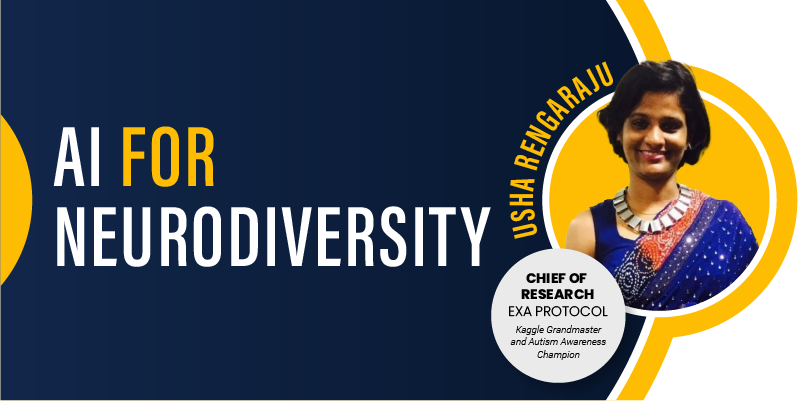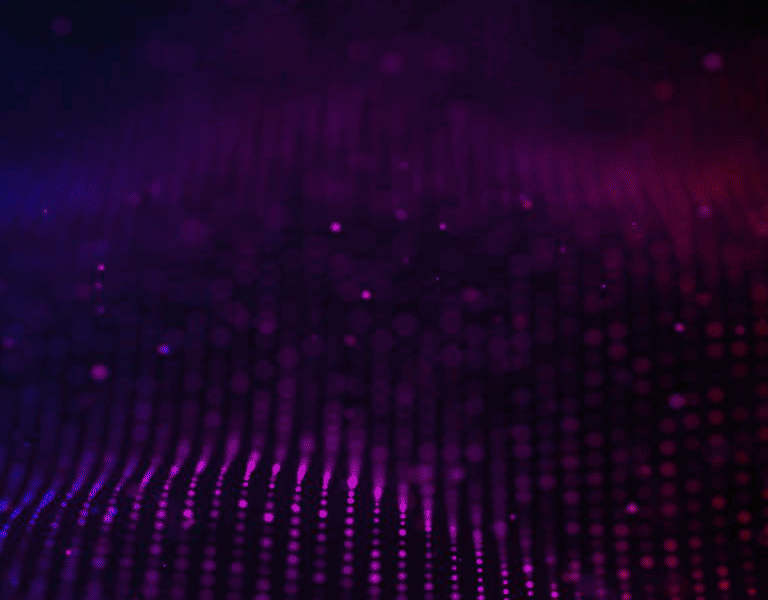AI for Neurodiversity

Neurodiversity is described as the variations in the human brain and how the human brain is wired. 1 out of 6 people is neurodivergent means that their brain functions in a different way than considered typical or standard. These unique traits are considered as neurodiverse conditions. Most of the people are neurotypical, which means that the functions and processes of their brains are as per the societal norms.
Autism, Dyslexia, Dysgraphia, Dyspraxia, Tourette’s Syndrome, and ADHD are some examples of neurodiverse conditions. Today, many technologies and solutions are targeting neurodivergent individuals such as AI-driven hiring platforms, social robots in classrooms, smart glasses for emotion recognition, speech recognition apps, eye-tracking, biofeedback, virtual and augmented reality for emerging education, data analytics dashboards, and various other assistive and tracking applications.
This article focuses on Autism, especially the high-functioning autism spectrum, not the low-functioning autism.
Autism Spectrum
Autism spectrum disorder (ASD), formerly known as autism, is characterized by a wide range of conditions with challenges in repetitive behaviors, social skills, and communication skills. Since it is a spectrum disorder, autistic people show a distinct set of challenges and strengths. The skillsets of autistic people range from severely challenged to highly skilled based on their dependency conditions. Some autistic people need considerable support in their daily lives, some need less amount of support, and some others can live independently.
High-Functioning Autism
People with the high-functioning autistic disorder can live independently and carry out successful careers. Even though the term high-functioning autism is controversial for several autism advocates, these people carry out their day-to-day activities and are capable of being employed in organizations. Several organizations are hiring people with a high-order autistic spectrum.
Organizations such as HP, SAP, Well Fargo, Microsoft, EY, etc., are considering autistic people as employable, but the problem faced by these organizations is that they are not able to find such candidates.
High-functioning autistic people often have desired employable qualities such as high intelligence, attention to detail, intense commitment to high-quality work, ability to hyperfocus, high energy levels, and out-of-the-box thinking. There are a lot of famous and talented people like Mark Twain, Thomas Jefferson, Beethoven, Thomas Edison, Mozart, George Bernard Shaw, Richard Strauss, Van Gogh, Emily Dickenson, Isaac Newton, etc., who were recognized to have the autistic disorder.
Characteristics of Autistic People
Autistic people, not all of them, yet some of them are good at doing mundane jobs than non-autistic people. They don’t get tired, are good at doing repetitive tasks, and are good at pattern matching. Autistic people are considered good hires for Data Scientist and AI job roles as most of these job roles involve pattern matching skills.
The brains of autistic people can process visuals in a better way, wherein the brains of non-autistic people can process what they have heard in a better way. While designing learning programs or any other programs, it is better to add a lot of visualizations and adopt a visual way of teaching that benefit autistic individuals.
Challenges in Neurodiversity Adoption in India
- The major challenge faced in India in the adoption of neurodiversity is the social stigma attached to autism
- Autistic people refrain from saying that they are autistic, fearing any kind of discrimination, harassment, and bullying.
- Lack of awareness in the society
How AI Helps Neurodivergent People
- AI can be used for the early detection and diagnosis of Autism, which is crucial for making the child independent and a lot of problems associated with this disorder can be solved. Since a lot of neural wiring happens in the brain of a child below 5 years old, early detection of autism will help autistic kids to become independent.
- AI can be used for emotion recognition as autistic people face difficulties in understanding emotions. Products like Google Glass and other similar products are introduced to help autistic people, but these products are not completely adopted by people across the globe because of the inaccessibility and unaffordability of such products.
- AI can be used for facial expression detection
Autistic people struggle hard to understand the facial expression and emotions of others, which require the use of additional mental resources. If AI helps in reading the emotions and facial expressions of others, then autistic people can make use of their mental resources more effectively.
Conclusion
AI apps can assist the neurodivergent community by enabling them to have a better cognitive experience. AI is also creating new jobs for neurodivergent people by using unique skillsets such as pattern recognition, handling repetitive tasks, and data analysis. Thus, AI offers a world of opportunities for the neurodivergent community both in learning and in professional growth. Watch the video to have an in-depth understanding of AI for Neurodiversity.



